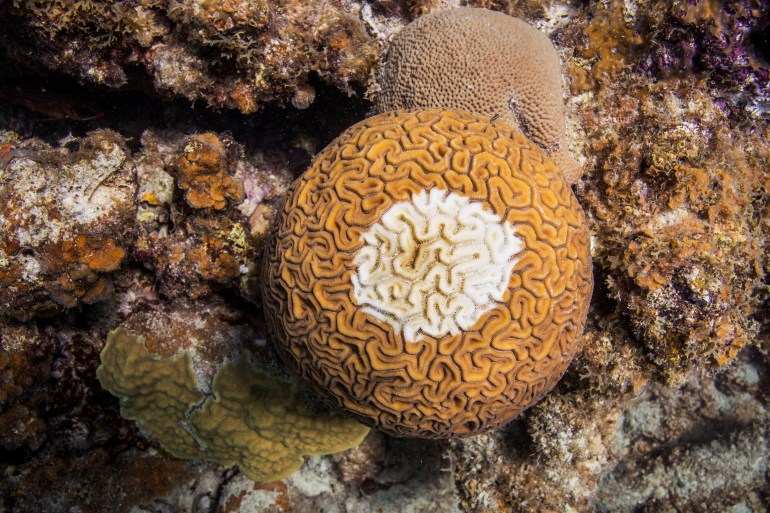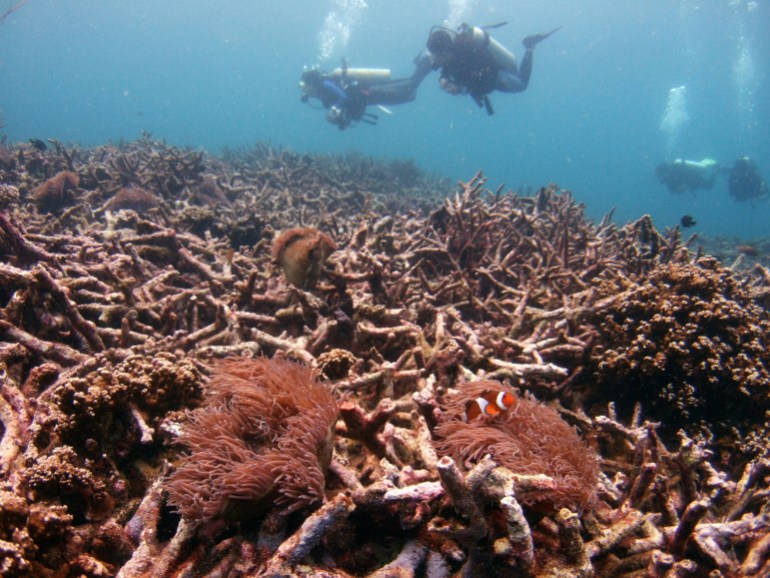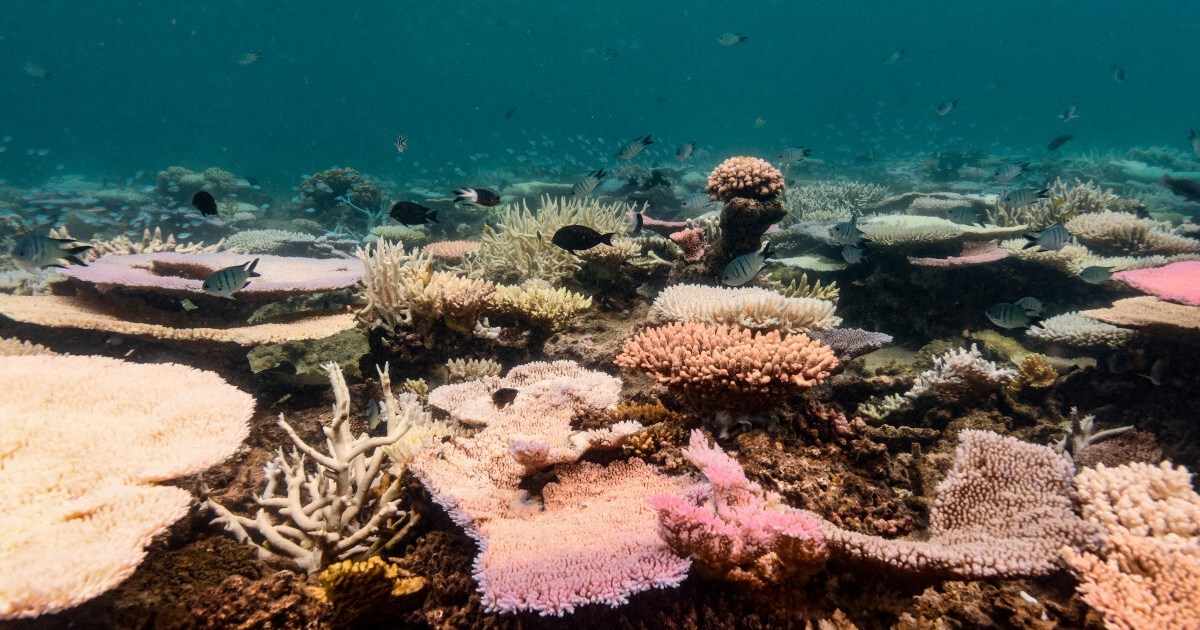Coral reefs around the world experiencing mass bleaching, scientists say | Climate News
Along coastlines from Australia to Kenya to Mexico, many of the world’s colourful coral reefs have turned a ghostly white in what scientists say has amounted to the fourth global bleaching event in the last three decades.
At least 54 countries and territories have experienced mass bleaching along their reefs since February 2023 as climate change warms the ocean’s surface waters, the US National Oceanic Atmospheric Administration’s (NOAA) Coral Reef Watch, the world’s top coral reef monitoring body, said on Monday.
“From February 2023 to April 2024, significant coral bleaching has been documented in both the northern and southern hemispheres of each major ocean basin,” Derek Manzello, coordinator of Coral Reef Watch, told journalists.
Corals are invertebrates that live in colonies. Their calcium carbonate secretions form hard and protective scaffolding that serves as a home to many colorful species of single-celled algae.
Coral bleaching is triggered by water temperature anomalies that cause corals to expel the colourful algae living in their tissues. Without the algae’s help in delivering nutrients to the coral, the corals cannot survive.
“More than 54 percent of the reef areas in the global ocean are experiencing bleaching-level heat stress,” Manzello said.
Like this year’s bleaching event, the last three – in 1998, 2010 and 2014-2017 – also coincided with an El Nino climate pattern, which typically ushers in warmer sea temperatures.
Sea surface temperatures over the past year have smashed records that have been kept since 1979, as the effects of El Nino are compounded by climate change.
In turn, Australia’s Great Barrier Reef, the largest coral reef system in the world and the only one visible from space, has been severely impacted, as have wide swathes of the South Pacific, the Red Sea and the Gulf.
“We know the biggest threat to coral reefs worldwide is climate change. The Great Barrier Reef is no exception,” Australia’s Environment Minister Tanya Plibersek said last month.
Caribbean reefs experienced widespread bleaching last August as coastal sea surface temperatures hovered around 1-3 degrees Celsius (1.8-5.4 degrees Fahrenheit) above normal.
Scientists working in the region then began documenting mass die-offs across the region. From the staghorns to brain corals, “everything that you can see while diving was white in some reefs”, marine ecologist Lorenzo Alvarez-Filip from the National Autonomous University of Mexico told Reuters.
“I have never witnessed this level of bleaching.”
At the end of the southern hemisphere summer in March, tropical reefs in the Pacific and Indian Oceans also began to suffer.

Scientists have warned that many of the world’s reefs may not recover from the intense, prolonged heat stress.
“What is happening is new for us, and to science,” said Alvarez-Filip.
“We cannot yet predict how severely stressed corals will do,” even if they survive immediate heat stress, he added.
Recurring bleaching events are also upending earlier scientific models that forecast that between 70 percent and 90 percent of the world’s coral reefs could be lost when global warming reached 1.5 degrees Celsius (2.7 F) above pre-industrial temperatures. To date, the world has warmed by some 1.2 C (2.2 F).
In a 2022 report by the UN Intergovernmental Panel on Climate Change, experts determined that just 1.2 C (2.2 F) of warming would be enough to severely impact coral reefs, “with most available evidence suggesting that coral-dominated ecosystems will be non-existent at this temperature”.

This year’s global bleaching event adds further weight to concerns among scientists that corals are in grave danger.
“A realistic interpretation is that we have crossed the tipping point for coral reefs,” ecologist David Obura, who heads Coastal Oceans Research and Development Indian Ocean East Africa from Mombasa, Kenya, told Reuters.
“They’re going into a decline that we cannot stop, unless we really stop carbon dioxide emissions” that are driving climate change, Obura said.
Check out our Latest News and Follow us at Facebook
Original Source







